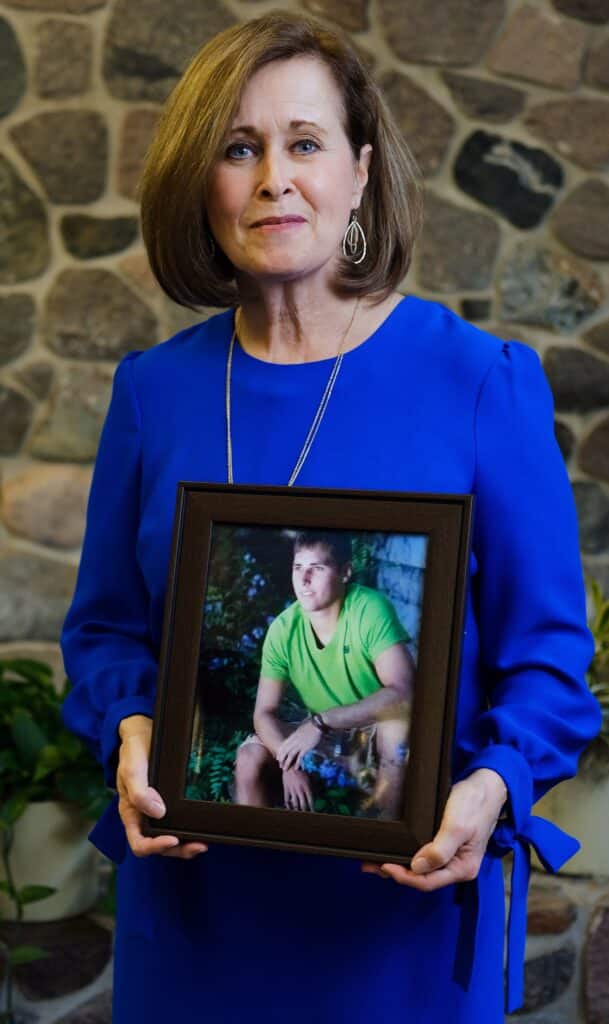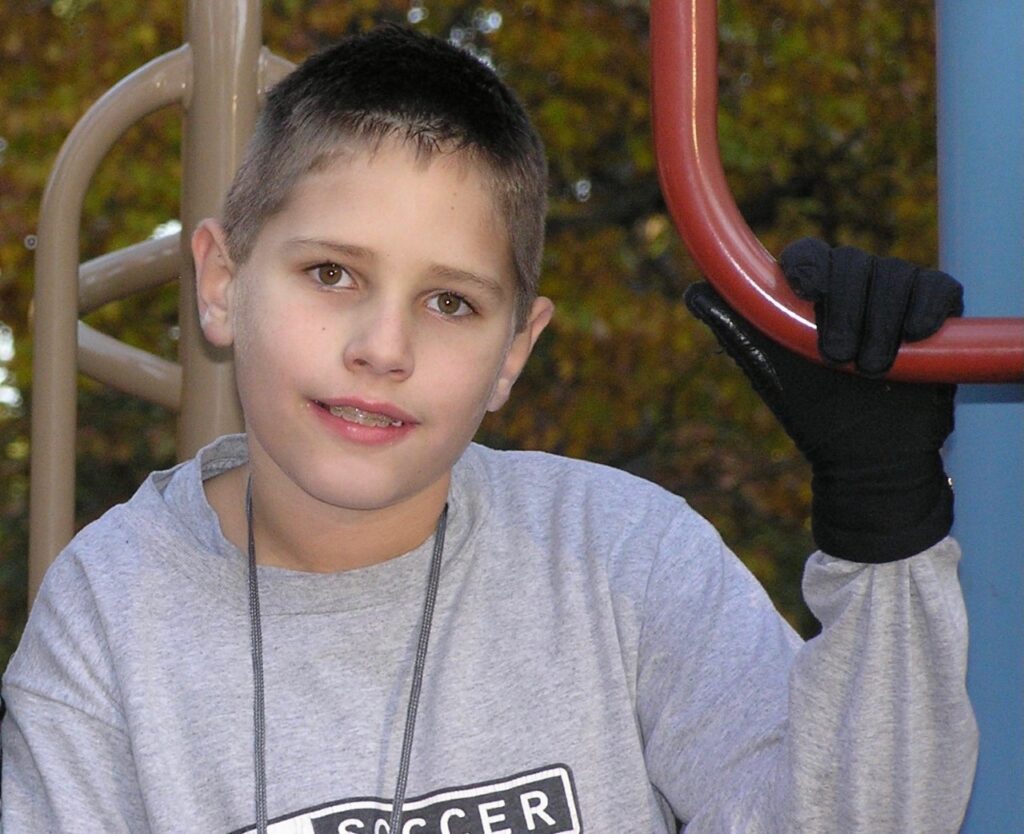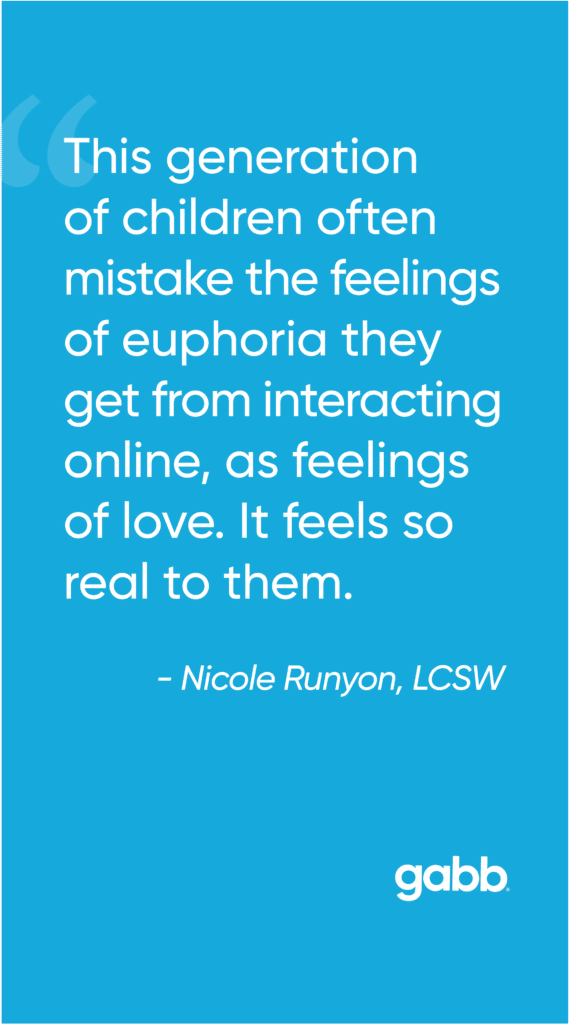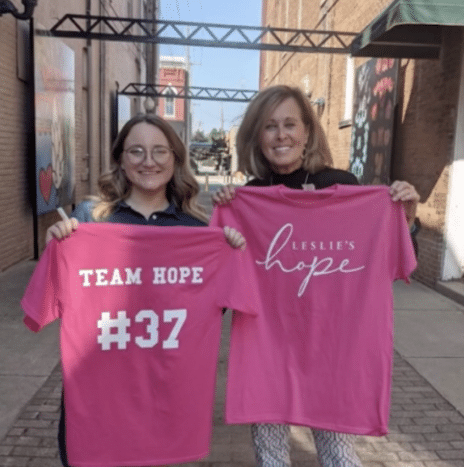My son took his life on September 10, 2016. I’d later discover a cruel bit of irony in that: September 10th is World Suicide Prevention and Awareness Day.
I believe his smartphone played a role in the depression that led to his suicide. I often think back and wish I had known then what I know now about how smartphones affect a child’s developing brain.
If only I had known half of what I know now, our decision to give him a smartphone would have been a different one.

A Smartphone: A Seemingly Harmless Decision
Our son Austin loved football, and it seemed like he was built for it. He was already tall for his age when he started playing in fifth grade. When it was time to take the team photo, he would always be asked to stand in the back with the coaches.
It’s hard to be nearly six feet tall when you’re only 11 years old. People expected him to be more mature. But he was just a young boy in a big body who still had so much to learn.

I still remember the decision to give him a cell phone so we could keep in touch with him after practice. At the time, a smartphone was essentially the only option we knew of — there were no kid-safe devices available. Without realizing it, we did what many people on the football field did: we expected him to act beyond his age.
Without realizing it, we did what many people on the football field did: we expected him to act beyond his age.
The decision seemed so harmless and innocent almost 15 years ago, but it’s clear to me now that he was not ready to manage a smartphone.
There is much more discussion today about mental health. The disturbing decline of mental health among youth has been so severe that the US Surgeon General has issued an official warning against social media.
Unfortunately, when Austin was growing up, there was barely any conversation about any of this. It frankly didn’t occur to me that my son was depressed, or that his phone could be contributing to it.

Source: Screenshot from HomeTown Living
A Surprising Mask
Looking back, I see that one way Austin masked his depression was by overachieving.
He was on the high honor roll, in student leadership, played multiple sports, and was voted The Scholar Athlete all four years of high school. To top it all off, he won The Hugh O’Brien Youth Leadership (HOBY) Award — a statewide award only given to one student in each high school. He attended a leadership conference that summer with 174 other award recipients.
He was disciplined and driven and his hard work was paying off in the classroom and on the football field. He just wasn’t finding the same success in relationships, online or in person.
After he came home from the HOBY conference, he was constantly on his phone talking to the girls he’d met that summer. They were promising each other they would go to prom. At one point, he had over a dozen prom dates lined up. I remember having a conversation where we told him that spring was more than ten months away and a lot of things could change by then. And of course they did.
One by one, those long distance relationships fell apart. Eventually, there was just one date left and he had all of his hopes on her. That date also fell through but rather than turning to girls in his own high school or town, he dove deeper into the internet.

Technology can provide a warped reality of relationships
One afternoon, Austin started telling me about a girl he had met on a dating site who lived in Mississippi. She asked him if he would be her prom date that Spring. I just looked at him in disbelief and said, “Austin, you really don’t know anything about this girl. And you live in Indiana!”
Both of these statements seemed so logical and obvious to me, but not to a 16-year-old. He just couldn’t understand why this wasn’t a good idea.
We would spend the next weekend going over the risks of meeting a stranger and the logistics and expenses that would be involved, trying to explain to him why this idea just wasn’t going to work.
Not seeing the logic, he doubled down on his conviction to go to prom with a girl who lived over 600 miles away — whom he had never met.
What I didn’t understand then was something researchers have now made clear: fake online relationships can be more enticing to young adults than real, in-person relationships.

I now realize that Austin’s social-emotional skills were underdeveloped and the apps and platforms on his smartphone were exploiting that.
For many reasons, he was not ready for a smartphone. When he met girls virtually, he could imagine they were perfect. That’s not a luxury he could enjoy in a real relationship with someone in his own school.
Blindsided by depression
I will never forget the night the police called to tell us Austin was being picked up because he was at risk of harming himself. We were shocked. What was going on?
Eventually we learned that a prom date he met from the HOBY conference was getting back together with her boyfriend, which sent Austin plummeting emotionally. He texted her back, “I’m just a loser and I might as well kill myself.”
She bravely told her mom and her mom contacted our local police, who picked up the Junior Class President from his high school basketball game that evening.
My husband and I met Austin at the police station where we spent over an hour convincing the police that our son was just a heartbroken kid who overreacted to a text, but was definitely not suicidal.
Devastatingly, they were right and we were wrong. Just three years later, this young woman and her mom would attend Austin’s funeral service.
I wish I knew then what I know now.
Back then, we didn’t know that his cell phone would have such an impact on his social and emotional skills. That those virtual conversations and virtual relationships contributed to him being unable to have healthy relationships with his peers. I wish we had known that his secret life online was wearing down his self esteem and causing him to plummet into depression.
These things are much better understood today but oh how much I wish we would have understood it then and never handed our 14-year-old son a smartphone.

Why I Share Austin’s Story
Shortly after Austin died, a woman reached out to me on LinkedIn. She told me she had been following our story and wrote a book that she wanted to send to me. This woman had also experienced tragedy through the back-to-back loss of her 39-year-old husband to cancer and six-year-old son just two years later. She knew loss and grief. What she said in our first conversation really resonated with me.
She told me, “When we go through tragedy we are left with only two choices in life. We can either stay stuck in our story or we can stand on our story. I chose door #2 and that has made all the difference in my life.”
Over the past seven years, we’ve shared our story all over the nation — in schools, civic organizations, fundraisers, and now on military bases all over this country.
One of the most interesting things to me is not what happens when I’m speaking, but when I come off the stage. There will be so many people, from students to soldiers, who line up and want to talk. Because they’ve heard my story, it gives them permission to tell their own. All they want is to be seen and safe and heard.
I think that’s all any of our kids want — to be seen and safe and heard. Roughly 73% of GenZ self-reports as being lonely sometime or all the time, and yet they are the most digitally connected generation ever.
What does that tell us?
Screen time can never replace human connection.
Teens who spend more than seven hours a day on their phones are twice as likely to struggle with anxiety and depression, which can lead to self-harm or suicide. That’s why every keynote talk I give we focus on taking a digital break every day and making a real-life human connection.
Then we talk about hope. I teach them the meaning of the word hope, which the Oxford dictionary defines as, “a feeling of expectation or a desire for a certain thing to happen.”
When we have hope in our lives then we are looking forward to tomorrow.
Hope is actually a protective factor for our brains. Hope can calm down our nervous system so we are able to make better decisions. Suicide is a complicated issue but I’m convinced that having a smartphone before he was ready for it contributed to the hopelessness that ended in my son’s death by suicide.
And where does hope come from? Human connection. Connection sparks hope and hope saves lives.
So let’s look for ways that we can teach our kids how to safely use technology and create real-life human connections with each other.
That’s true connection and in my life’s work we have an expression that rings true: connection is protection…especially for our kids.









Success!
Your comment has been submitted for review! We will notify you when it has been approved and posted!
Thank you!